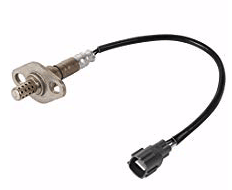P0130 is a very common OBDII code that occurs in the Ford Ecosport. It is typically caused when the Oxygen Sensor voltage is not within normal operating conditions.
Ford Ecosport P0130 Symptoms
Most of the time, it’s not a breakdown risk. But, like anything that causes the service engine soon light to come on it is a good idea to have it fixed as soon as possible. Here are the most common issues that cause the P0130 code in the Ford Ecosport. They are presented in order (somewhat) of most to least likely to cause the problem. Here is a fantastic video that covers all aspects of diagnosing a P0130 trouble code It’s for a VW, but the code is universal. It is possible to diagnose the P0130 with a multimeter. If you use the multimeter, you’ll know whether or not the voltage coming to and from the oxygen sensor is within spec, this can help you determine if it’s your Ecosport’s O2 sensor, or wiring harness that’s the issue. If you don’t have access to a multimeter, it certainly wouldn’t hurt to check the wiring to between the fuse box and the Oxygen sensor first. If it ends up being a wiring issue, it’ll save you money over buying an unnecessary O2 sensor. You can also use a voltage test light to determine whether or not the oxygen sensor is getting any voltage at all (they’re about $5 at Walmart). If it’s not getting any voltage, attach the test light to the harness plug and shake the wiring a little bit. If the light comes on, even for a second, you know that you have a short circuit causing the P0130 trouble code. Most of the time with P0130, it’s going to be the oxygen sensor itself that has caused the code to trigger. Good luck finding whatever caused it in your Ford Ecosport. If you have anything that you would like to add, please feel free to leave a comment below.
P0130 Causes: Ford Ecosport

Ecosport P0130 Diagnosis
Conclusion
